No matter a hotel’s size, a strong revenue management program is essential. Without one, it’s like playing a game of darts in the dark. You know the bullseye is out there somewhere, but finding it becomes near impossible.
Yet, we still hear the same old excuses from hoteliers resistant to change. But while excuses feel warm, comfy and familiar; in the end, those properties fall further and further behind the competition. Take Kodak for example. The company invented the first digital camera in 1975, but feared technological change so much, it never pursued the market. Now, Kodak is irrelevant and sidelined in a niche business.
It’s a valuable lesson that teaches us to embrace technological change, not fear it. Even in the hotel business.
Revenue management is a critical strategy that must be utilized at every hotel, no matter its size. When executed correctly, even the smallest hotels benefit from a smart system that drives key metrics such as occupancy, ADR and RevPAR. It’s a successful tool because revenue management more effectively factors true supply and demand into room rates, ensuring competitive pricing that maximizes earning potential from every booking, every time. Plus, newer machine learning based revenue systems such as the ones offered by LodgIQ, leverage more data points than possible even a few years ago. More accurate forecasting recommendations become possible by incorporating valuable data sets such as vacation rentals and peer-to-peer accommodations.
How does a hotel start a revenue management strategy?
At its core, revenue management is about optimizing property performance. Start by setting a strategy to achieve specific property goals. First, determine that your primary objective is to drive RevPAR and choose based on demand information if you need to drive occupancy, or ADR, or a combination of both to achieve that goal. Already now you’ll be better able to determine day-to-day revenue management decisions that help you achieve that goal in order to drive RevPAR.
A rapid reinvention of revenue management system (RMS) technology means it’s easy for a hotel to implement a highly-sophisticated revenue management strategy once the system is turned on. No need for a huge team of experts or a cadre of mathematical geniuses. Nearly anyone can tap into RMS power to implement highly-effective revenue management strategies. That’s because the technology handles all the heavy lifting by collecting and analyzing data, then providing the recommendations for the most accurate room rates on a specific day.
With an effective RMS, the hotel revenue manager’s role can then evolve to a more strategic level. That person can focus on setting strategy, monitoring RMS performance (ensuring its pricing recommendations are in-line with overall goals), and partner with other internal teams on developing promotions, marketing campaigns, and other tactical areas that need human brain power.
Related articles:
Are all RMS technologies the same? How do you choose the right RMS for you?
What is machine learning and why do I need it in my RMS?
Tips & tricks from the revenue management experts
Prefer your news all at once? Sign up to receive revenue-related news right to your inbox.






